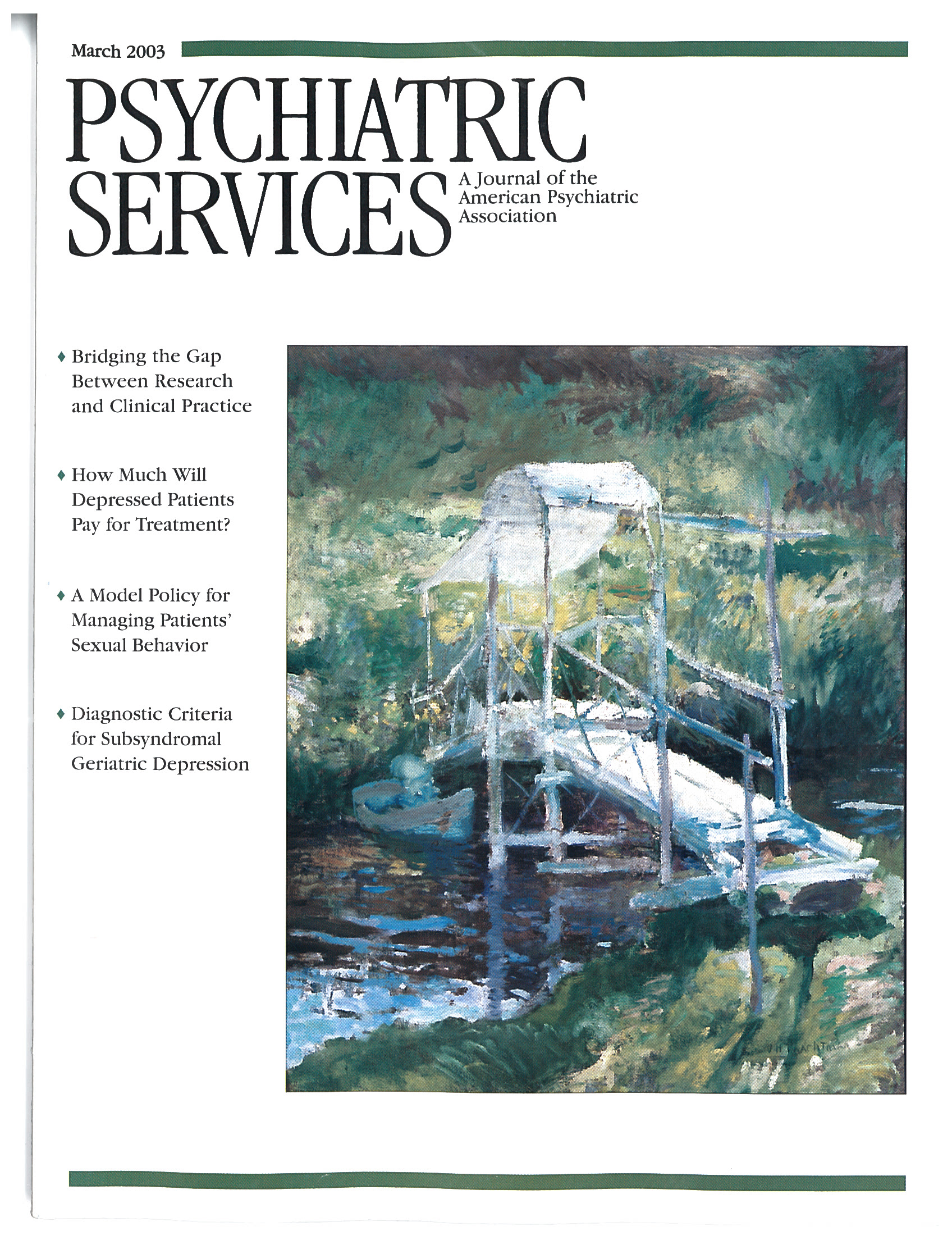In Reply: Dr. Geller raises a very important question. In essence, are studies of process fundable? Do the research agencies and their peer review teams concur about the relevance of such studies?
I believe that process studies are fundable, but I thought I would check this out with some of the powers that be at the National Institute of Mental Health. They agree that studies of process and outcome are important. There are a number of current program announcements (PAs) under which a researcher so inclined could apply (see www.nimh.nih.gov). I particularly like PA-01-145, entitled "Research on Quality of Care for Mental Disorders," as a mechanism for studying the relationship between process and outcome.
However, the fundamental question we might wish to ask ourselves is not how these studies should be funded, but why they need to be funded? The argument for following this line of research needs to be made repeatedly and forcefully. For example, we already have data suggesting that people who recover from severe mental illnesses identify their relationships with other people as key to their recovery process (
1). A plethora of studies in psychotherapy point to the importance of process variables in achieving therapeutic outcomes (
2). Why wouldn't these factors be worthy of intense study in the field of severe mental illnesses?
Furthermore, we need to understand what the person served thinks about the helping process that he or she experienced. Thus, when we study the impact of the human interactive process, let us advocate for the value of subjective measures and qualitative approaches. In a similar vein, process and outcome studies need to emphasize the outcome dimensions that the person served believes are important, such as meaningful roles in society, self-efficacy, well-being, reduced levels of discrimination, and minimal iatrogenic impacts (
3).
It is up to us to present supportive research from other fields, develop the helping models that focus on process, and collect and report the data. I am convinced that study of the helping process, rather than program structure and program setting, is critical. Unfortunately, information and publications about evidence-based practices are currently being disseminated without data on the helping process that occurs within each practice or on the process dimensions that cut across evidence-based practices. I would encourage Dr. Geller and other like-minded researchers—including myself—to continue to make a case for studying the human interactive process in our field. Increased funding will follow.

